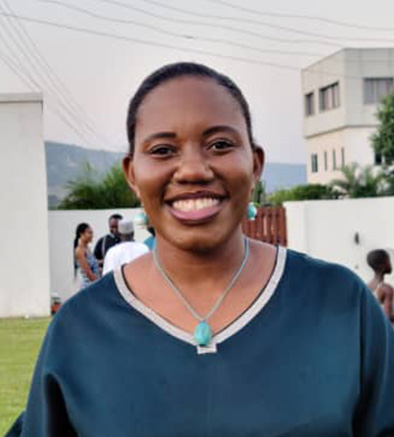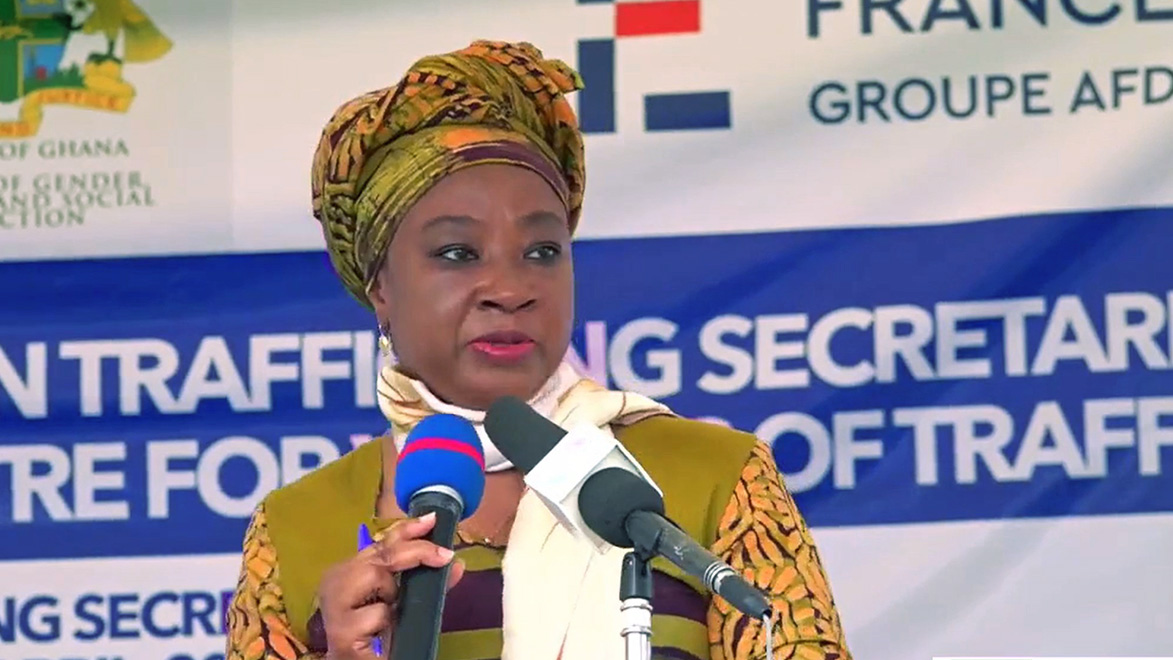In Ghana, a Support Center for Victims of Human Trafficking
INTERVIEW Thanks to financial support from the EU and France, as well as operational support from Expertise France, Ghana’s Ministry of Gender, Children and Social Protection has opened new offices to meet with victims of human trafficking.

With ABENA ANNOBEA ASARE,
Head of the Human Trafficking Secretariat
Human trafficking is an issue in the Gulf of Guinea. Can you tell us more about this topic and its causes, in Ghana specifically?
As a part of the Gulf of Guinea, Ghana is a source, transit country and a destination for human trafficking, although it is prohibited by the Human Trafficking Act established in 2005. The main driver is poverty: people travel outside the country in search for a better life. The nature of our country enables people to cross land borders rather easily. For example, somebody could live in Ghana but have a farm that crosses the border with Togo, which would make it easy to cross the border daily.
External, cross-border trafficking mostly concerns adults. Women generally want to engage in domestic work in the middle-eastern Gulf countries. People deceive them, tell them they’ll have domestic work, but they often end up in prostitution. Men usually plan on crossing the Mediterranean Sea to reach Europe, going through Morocco or Libya, and end up being smuggled and exploited on the way.
There is also internal human trafficking in Ghana, which mostly affects children. They are victims of labor exploitation. In coastal communities, for example, some fishermen want to have more labor force without hiring and will get children to work, under the age of 13. In Ghana, working under the age of 18 is prohibited unless it takes place within the apprenticeship framework. This is not what happens in child labor, where there is a high level of abuse.

The new offices of the Human Trafficking Secretariat and the Trauma Informed Care Center were inaugurated in Accra in April 2022.
How old is this phenomenon? How effective is the legislation?
Human trafficking exists in Ghana. Since 2012, the government has implemented awareness campaigns to inform people about this issue and the migratory process. Although it did not stop human trafficking, as people found alternative routes, it still had a positive impact on the phenomenon and numbers started to reduce. There are also bilateral agreements between Ghana and destination countries to ensure the protection of the rights of migrants.
In April 2022, the Ministry of Gender, Children and Social Protection commissioned a building for the Human Trafficking Secretariat (HTS) and Trauma Informed Care Centre, located in Osu, Accra. What are the goals of this institution?
We were lucky to be able to implement this project with Expertise France, thanks to EU and French funding. Our goal was to improve the level of care and service delivered to the victims of human trafficking. The Trauma Informed Care Center provides counseling, training and help in various forms for all people who suffered from this experience.
To make sure our social and clinical workers can provide the best level of care, we needed to give them the adequate working environment. They used to work at the Ministry of Gender, Children and Social Protection, where they shared offices with other departments. It was difficult for them to receive victims there – not to mention the confidentiality issue it raised. Now, the HTS and Trauma Informed Care Center provide a very conducive environment: victims are welcome to have their meetings with the administration, get therapy, and just benefit from a safe place, in addition to their shelter. Our workers can deliver their mission in the best possible way.
One year after the opening of this new place, which assessment can you make?
Based on the original purpose and intent, we’ve met the target. I think one lesson we can also learn from this experience is how important it is to benefit from a completely refurbished, fully-equipped office space. We now have everything we need, from computers to furniture and work stations, and this translated into a great level of productivity in our daily work. Our Center Care is a “one-stop shop” and this makes it very efficient.
Do you intend to replicate this project in the future?
We plan to open such care centers in other regions. We are currently building one in the Volta region, another one in the Greater Accra region, which is for children specifically. We will be more than glad to see this project return for a second phase.
Interview conducted in March 2023
See also






